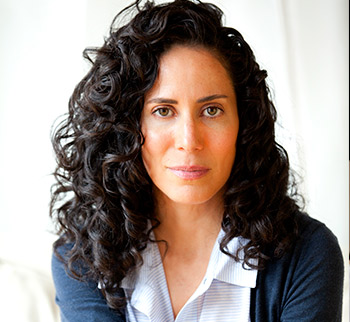Back in 2004, Mireille Silcoff was a sought-after journalist living a peripatetic life as founding editor of Guilt & Pleasure Quarterly, a magazine of new Jewish writing and ideas; an author of three books about drug and youth culture; a lead columnist with the National Post; and a frequent contributor to the New York Times Magazine.
Silcoff spoke to the The CJN from her home in Montreal about her book, a collection of eight stories, Chez l’arabe, launched last August by House of Anansi Press.
“I was living in Toronto doing most of my work in New York, and my fiancé, to who I am now married, was living in Montreal – a crazy existence. I was on an airplane all the time,” recalled Silcoff.
Silcoff was forced to give up her career when she was diagnosed with a rare genetic chronic condition: spontaneous cerebrospinal fluid leak.
“I went through this harrowing process. I had to abandon everything as I became more and more ill. I stopped writing. I became a very sick woman at the age of 31,” Silcoff, now 42, said.
Her spinal fluid leaked, and it couldn’t function as a natural cushion for her brain. Her brain sunk into her skull leaving her in agony.
Confined to a bed, it took her a slow span of over half a decade to get better.
Silcoff couldn’t hear, speak, or move for many weeks. “I was completely like a husk,” she said.
It was during that period that she began writing. She started off with poetry, moved on to writing letters, then shifted to fiction. She wrote the title story in 10-15 minute bursts everyday.
“Chez L’arabe is a story about two people from opposing sides who find themselves together in a foxhole, forging a friendship in the weirdest way one can be forged,” Silcoff said.
Surprisingly, Silcoff realized fiction was something she could do.
“I never entertained the notion of being a fiction writer before. I was very happy in the world of non-fiction. I continued writing the other stories, but it was a much more laborious process. I knew that first story would lead to a book and eventually – six years later – I did have a book,” said Silcoff,.
Silcoff grew up in Jewish Montreal and lives there today; a place that provides a rich setting, drawing moments of familiarity to its readers.
“There could be a nostalgic love quality to my writing,” she said.
The theme which holds the stories together is threads of other people’s lives that have been upended – through strained relations, marital dissatisfaction, professional limbo, and illness. Silcoff’s stories are detailed and infused with humour and touching emotional insights into the human condition.
Half of Chez L’arabe was written lying in bed writing in notebooks. Silcoff then graduated to using a laptop on a specially designed easel that she could use while in bed.
“When I was able to sit up, I would write a bit everyday at a desk. It was a very incremental process,” she said.
“I am still going through it. I will always have this syndrome, it’s just a lot better than it was but it’s something I will live with for the rest of my life.
“I think in a funny way the book is a record of my healing. When one reads the book, it can be seen that there is a trajectory of a certain character in four linked stories, and, as these stories progress, in each story she is getting better. That was really happening to me as well,” she explained.
Where does autobiography end and fiction begin?
“Everybody takes from their lives. I do have an Israeli mother who, in certain ways, is similar to the mother in the book,” Silcoff says.
“My mom [Yaffa Meir Handel] was quite a well-known Israeli folk dancer in Tel Aviv before she immigrated to Canada in the 1960s. The mother character in the story has many of my mom’s qualities but not many of her better qualities.
“You pick and choose what you think will make for good fiction, good tension, good stories. Many of the details in the book are called from my own life – but nothing in the book truly happened to me,” she emphasized.
